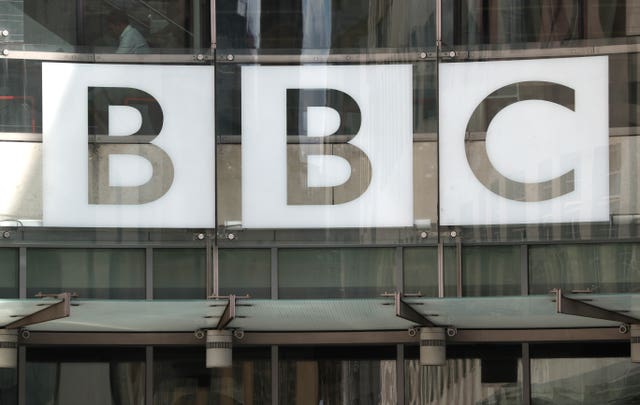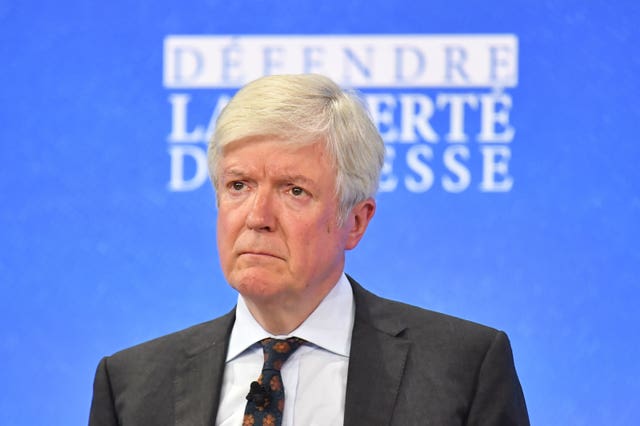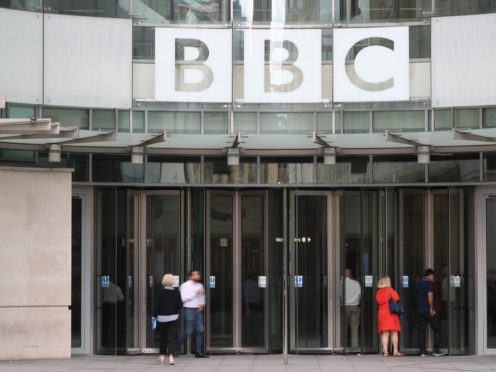Some viewers are concerned that the BBC gives too much coverage to “extreme” viewpoints, Ofcom has said.
The watchdog found that viewers worried about the corporation’s approach to impartiality, especially its inclusion of “controversial viewpoints”.
Ofcom said its research showed viewers felt “extreme political views” were given “undue prominence” on the news agenda.
The results have been published in its second annual report into BBC News and current affairs.
Having greater confidence in news pic.twitter.com/KDYfjhvYaD
— Ofcom (@Ofcom) October 24, 2019
However, Ofcom also said those most critical of the BBC over alleged bias tended to themselves hold the strongest political views.
The report said: “When it came to content, audiences perceived the BBC as giving too much coverage to extreme voices while others criticised ‘false equivalence’ in its reporting.
“Those who were critical of the BBC’s impartiality also tended to hold the strongest political views.
“The current polarised political climate presents a challenge to the BBC in how it approaches due impartiality.”
The report said viewers also suggested more extreme views were given priority over more moderate or “typical” perspectives, and that they could sometimes go unchallenged.
Reaching younger people pic.twitter.com/oXxGxflU2N
— Ofcom (@Ofcom) October 24, 2019
In a letter to BBC Director-General Lord Tony Hall, Ofcom’s chief executive Sharon White said some viewers had “concerns” about the BBC’s coverage.
She said: “There were also concerns over aspects of the approach the BBC takes due to its impartiality in its news and current affairs coverage.
“Some audiences perceived the BBC gave too much coverage to extreme voices.
“Others highlight ‘false equivalence’ in reporting.”

In the same document, the watchdog recommended that the BBC be “bolder” and that it should feel able to challenge “controversial viewpoints” with little support amongst the public.
It said: “Broadcasting rules do not require the BBC or other broadcasters to be absolutely neutral on every issue within news and current affairs, but they must be duly impartial.
“This means journalists should take context into account when considering how to achieve due impartiality.
“They should feel able to challenge controversial viewpoints that have little support or are not backed up by facts, making this clear to viewers, listeners and readers.
“Our research shows that audiences have respect for the calibre of the BBC’s journalism and expect its reporters to investigate, analyse and explain events.
“This should give the BBC confidence to be bolder in its approach.”

The report also found that BBC News was seen by some as “representing a white, middle-class and London-centric point of view that is not relevant to their lives”.
It said “The BBC’s heritage and longevity can inspire trust, but we also heard the BBC described as Westminster-focused and speaking for, and to, a small section of society.
“Some viewers told us they see the BBC’s television bulletins as stuffy and limited in range.
“The perceived lack of diversity in BBC reporters and presenters, or the lack of different viewpoints, was also raised by people from minority ethnic backgrounds.”
The report also favourably addressed BBC News’ reputation as a trusted source.
Our response to Ofcom’s review of BBC News & Current Affairs: pic.twitter.com/6A8Z6LAnUx
— BBC Press Office (@bbcpress) October 24, 2019
Ofcom said the channel remained the UK’s “primary source of news” for people looking for “rusted and accurate reporting” despite the uncertain political environment.
However, it warned that BBC News’ handling of “reputational issues” such as the gender pay dispute had damaged its reputation among viewers.
However, the report added also found that young viewers were increasingly finding their news via social media and aggregator services.
It said that when people find their news this way their engagement is typically “fleeting” and that they usually only read a headline of brief paragraph before moving on.
The BBC said it welcomes the report’s recognition of its “trusted, accurate news” service.
It said: “Ofcom notes that people’s perceptions of due impartiality are often coloured by their own beliefs and that the BBC’s unique status means we are subject to greater scrutiny than other news providers.
“As Ofcom points out, it has not upheld any complaint against the BBC on the grounds of impartiality. Being an impartial broadcaster means people will hear from a wide range of people, including views that they don’t agree with, but we will continue to give different views their due weight so audiences have the context they need to understand what’s happening in the world.
“We are committed to ensuring the BBC serves all audiences and reflects, and represents the whole of today’s UK, and while we have made progress in reflecting this in our workforce we have been clear there is still more to do.
“As Ofcom has recognised, in today’s digital world it’s vital that the BBC engages with young audiences online, which is why we will continue to develop our offer for young people.”
